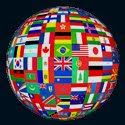Petition Statement:
For the past few months, professional translators and interpreters all over the world have been expressing their concerns over the ethical problems posed by crowdsourcing and how this practice negatively impacts an already suffering industry, but our concerns have not been heard and more unethical practices have arisen as a result of crowdsourcing. The reasons why we are against crowdsourcing are the following:
1. Professional translation requires years of training, extensive general culture, and excellent command of both the target and source languages. The job of translators and interpreters is not simply to translate words, but rather to convey meaning and concepts as well as to provide cultural localization. This is why being “bilingual” or “knowing another language” is not enough to be a translator. We train, we study, and then we train some more... and for all that hard work we, as any other professional, feel we deserve fair rates and recognition. Crowdsourcing bases itself on non-professional translation provided either by people who are not qualified to translate in the first place (which shows utmost disregard for language and language professionals) or by people who, as a result of other unethical practices, are desperate to find ways of promoting their services and hope this form of exploitation will later translate into paid work.
2. We are users of the sites that resort to crowdsourcing and we feel insulted that the sites we are supporting show such disrespect for our line of work. We don’t see sites like Twitter and Facebook asking doctors who use their sites to provide free online medical services. We don’t see Twitter and Facebook asking lawyers who use their site to provide free online legal services. So we wonder, why do we see Twitter and Facebook asking professional translators who use their sites to provide free online services?
3. For years, universities and professional associations have been providing certification to translators as a way of raising industry standards and homogenizing linguist quality. We ask, what ethical and professional criteria (if any) do sites like Twitter and Facebook use to provide “awards” and “recognitions” to their “best” translators? Where exactly did these sites get the authority to do so?
Translation and interpretation are not hobbies or pastimes, they are professions. As users and supporters of the sites that are resorting to crowdsourcing we ask that these practices stop, that they leave translation to the pros, that they pay translators fair rates for their work, and that they show respect not only for language and culture, but also for their users. This petition was created by the group Translators for Ethical Business Practices, but we feel we speak on behalf of all translators and interpreters and invite all our colleagues (including non-members) to sign this petition and make their voices heard.
Professional Translators Against Crowdourcing and Other Unethical Business Practices Petition
+Dark+Backd.jpg)
1 comments:
>So we wonder, why do we see Twitter and Facebook asking professional >translators who use their sites to provide free online services?
I didn't see anywhere that those sites are asking PROFESSIONAL translators to do anything; as for many other similar instances (from Google Translate to Wikipedia, etc.) they simply asked ANYBODY to give a hand in making their interface understandable also to the many people that speak different languages in the world
How is this a "Threat to Professional Translators"? Isn't it instead a free, public, collective-based, useful service for so many people across the world? And even if those are not "Professional" translations, why bother? Professional Translators have their own Professional and High Priced Jobs to do, they will never be interested in such unprofessional translations (and free or low pay, at best), no?
Or are you saying that since these are "people who are not qualified to translate in the first place" (quoting again from you above text), projects like Twitter, FB, Wikipedia, Global Voices Online, TED, Google Translate, and many hundreds more should remain only in english or in their original language? And impose maybe legal penalties to those "unqualified people" and denounce/boycott such projects for "unethical business practices"? And how is your initiative hoping to stop such a widespread and a worldwide trend toward collaboration and sharing (online first, then offline)? Have you ever heard of free software and its successful influences in almost any business? and what about citizen journalism, crowdsourcing reporting: more "threats" to Professional journalism, right?
Post a Comment